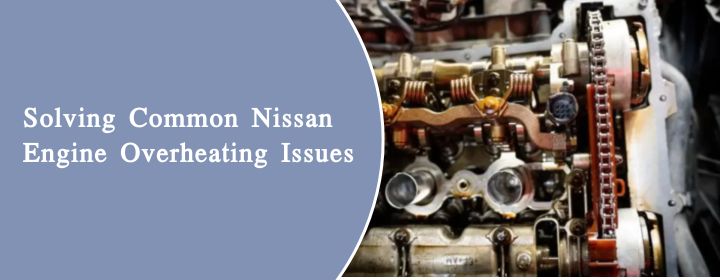Recent Blogs
- Used Engine Warranty Claims: Why They Get Denied & How to Avoid It
- Best Used Transmissions for Trucks and SUVs
- How to Choose a Quality Used Engine: A Buyer’s Checklist
- Top 7 Most Reliable Engines Worth Buying Used in 2026
- What Mileage Really Means When Buying a Used Engine in 2025
- Buying a Used Engine in 2025: A Complete Buyer’s Guide to Avoid Costly Mistakes
- How to Choose the Right Used Engine in 2025: A Complete Buyer’s Guide
- Why Used Engines Are the Smartest Fix for Budget-Conscious Vehicle Owners
- Safety, Trust and Buyer Beware: The Hidden Risks of Buying Used Engines & Car Parts Online
- Guide to Choosing the Right Used Engine Part for Your Vehicle

Used Engines for Sale
- ACURA Engine
- AUDI Engine
- BMW Engine
- BUICK Engine
- CADILLAC Engine
- CHEVROLET Engine
- CHRYSLER Engine
- DODGE Engine
- FIAT Engine
- FORD Engine
- GMC Engine
- HONDA Engine
- HUMMER Engine
- HYUNDAI Engine
- INFINITI Engine
- ISUZU Engine
- JAGUAR Engine
- JEEP Engine
- KIA Engine
- LANDROVER Engine
- LEXUS Engine
- LINCOLN Engine
- MAZDA Engine
- MERCEDES Engine
- MERCURY Engine
- MINI Engine
- MITSUBISHI Engine
- NISSAN Engine
- OLDSMOBILE Engine
- PONTIAC Engine
- PORSCHE Engine
- SAAB Engine
- SATURN Engine
- SCION Engine
- SUBARU Engine
- SUZUKI Engine
- TESLA Engine
- TOYOTA Engine
- VOLKSWAGEN Engine
- VOLVO Engine
Used Engines for Sale
View More
Solving Common Nissan Engine Overheating Issues
You are driving along, everything seems perfectly fine and then you notice your temperature gauge rising upward. You might take it as normal functionality but, it is not. Engine overheating is one of those issues that starts small but can quickly turn into something serious especially if you are driving a well used vehicle.
While Nissan cars are known for their balance of performance and dependability, they are not immune to overheating problems. The good news? Most of these problems have simple explanations. Furthermore, they often come with affordable solutions. Whether you are someone just trying to keep their ride running smoothly or want to understand what causes overheating and how to prevent it can save your engine and help in the optimum functionalty.
So, What is the main Issue?
Engines naturally generate heat. But when that heat is not managed properly things spiral quickly.Hence, enhancing the problems.
Let’s break it down.
Low or Dirty Coolant
The liquid that ensures good and healthy temperature, is termed as coolant. Whereas, when it becomes less functional when it is old, low or slowly flowing out. The moment temperature rises, overheating starts.
Stuck Thermostat
This part is like a valve, allowing coolants to flow down. In case it gets stuck closed? Coolant doesn’t circulate. The engine stays hot. And your dash will let you know real fast.
Clogged or Failing Radiator
Your radiator’s main purpose is to cool down fluid after it passes from the engine. If it’s blocked with dirt or corrosion—or if the fan isn’t working—your system backs up with heat.
Failing Water Pump
It won’t be wrong to say, that, this is the heart of cooling system It moves coolant throughout the engine and radiator. If the pump goes bad, coolant doesn’t circulate properly and things get hot more quickly and frequently.
Your Car Will Usually Warn You—If You’re Paying Attention
A Nissan engine doesn’t go from fine to fried instantly. Most drivers just miss the early signs.
Here’s what to watch for:
- Temp gauge pushing into the red
- Strange smells—sweet (coolant) or burnt (oil)
- Steam under the hood
- Sluggish acceleration or strange noises
- Dashboard warning lights (often ignored—don’t)
If you catch any of these, pull over safely and let the car cool. Driving an overheating engine could be the difference between a $40 hose and a $4000 rebuild.
Emergency Mode: What to Do on the Spot
Car heating up mid-drive? Follow this plan:
- Make sure to shut down the engine. Don’t try to “just make it home.”
- Wait at least 15–20 minutes. Let things cool before even lifting the hood.
- If you have coolant, check the level. Top up if it’s safe.
- Start the car. Start the heater to remove the heat from the engine (yes, really).
- Drive to a shop or home, only if temps stay stable. If not, tow it.
These steps won’t fix the root problem, but they can help you avoid major damage until a mechanic takes a look.
Want to Avoid This Altogether? You Can.
Here’s how:
- Every month Check coolant levels. Top up when needed.
- Make sure to replace the coolant once, every two to three years or every thirty to fifty thousand miles reached.
- Check: For any type of wear, cracks, bulges, or of any kind on belts and hoses.
- Listen for whining from the water pump area.
- Test your radiator fan regularly. Not working fan, can lead the performance of your car’s engine
The majority of overheating issues don’t begin that way. Either everything is accumulated at one place. Or, You can avoid costly repairs by taking just one step ahead.
However, what if the harm has already been done?
Overheating repeatedly can have negative effects. You might begin to observe:
- The exhaust’s white smoke
- Oil and coolant mixing
- Engine misfiring or stalling
- Continuous overheating, even after repair is done
This is a sign of faulty warped cylinder head, blown head gasket, or cracked block. If that’s the case, do not stress out. We at Used Engine Part are here when repair is just not worth it.
UsedEnginePart.com: When You Need a Solid Replacement
Not every overheating story ends with a new car. Many times, a quality used engine is all it takes to get your Nissan back in fighting shape—without paying dealership prices.
At Used Engine Part, every engine is:
- Tested for quality and performance
- Matched to your vehicle’s exact specs
- Backed by service and support that makes sense
We’ll assist you in locating the ideal Nissan engine.
Concluding remarks
Overheating is not just annoying. Instead it is your car waving a red flag. If your Nissan engine is running hot more often than not, it’s time to dig into the “why” before it becomes a “how much?”
Stay alert. Fix small problems early. And if the worst happens, know that Used Engine Part is your go-to for replacement engines that work—and last.
No gimmicks. No guesswork. Just the right engine, when you need it most.




